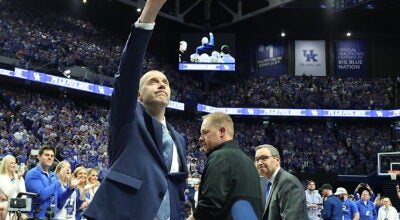Ky. Supreme Court denies injunctive relief, keeping abortion illegal in state
Published 11:30 am Friday, February 17, 2023

- Photo by Wesley Tingey on Unsplash
|
Getting your Trinity Audio player ready...
|
A sharply divided Kentucky Supreme Court upheld a state appeals court ruling that temporarily allows enforcement of two laws effectively banning abortion in Kentucky while a lawsuit challenging their constitutionality plays out in district court.
The 150-page opinion issued Thursday came three months and one day after the justices heard oral arguments on whether to reinstate a temporary injunction that would prevent the laws from being enforced back in November.
One of the laws is Kentucky’s trigger abortion ban, which took effect when Roe v. Wade was overturned by the U.S. Supreme Court last summer, in what has become known as the Dobbs case. The state ban does include an exception for when the life and health of the mother is at risk. The other law before the high court bans abortions after six weeks of pregnancy.
A lawsuit challenging the constitutionality of the laws was filed by EMW Women’s Surgical Center and Planned Parenthood in Louisville, Kentucky’s only two abortion clinics, shortly after Roe’s reversal. A temporary injunction was issued by a Jefferson Circuit Court judge, but on an appeal brought by Kentucky Attorney General Daniel Cameron, the injunction was lifted by a state appeals court panel pending the Kentucky Supreme Court’s review. Elective abortion services have been suspended in Kentucky since the injunction was lifted.
One of the arguments on which the justices differed was whether EMW has “First Party Standing,” meaning whether the surgical center would suffer injury by the laws, or if they have “Third Party Standing” and are not directly affected, and therefore have no right to sue per past federal court rulings, including the Dobbs case.
The majority opinion was written by Justice Debra Lambert, in which Justice Robert Conley concurred, and Chief Justice Laurance VanMeter concurred in the result. The remaining four justices concurred in part and dissented in part, issuing separate opinions.
Some of the justices indicated that if EMW had added one or more of their patients as plaintiffs in the suit, there would have been no controversy over First Party Standing.
This action sends the case back to Jefferson Circuit Court, where a trial on the merits of the case can now be heard.
“To be clear, this opinion does not in any way determine whether the Kentucky Constitution protects or does not protect the right to receive an abortion, as no appropriate party to raise that issue is before us,” Deputy Chief Justice Debra Hembree Lambert wrote. “Nothing in this opinion shall be construed to prevent an appropriate party from filing suit at a later date.”



